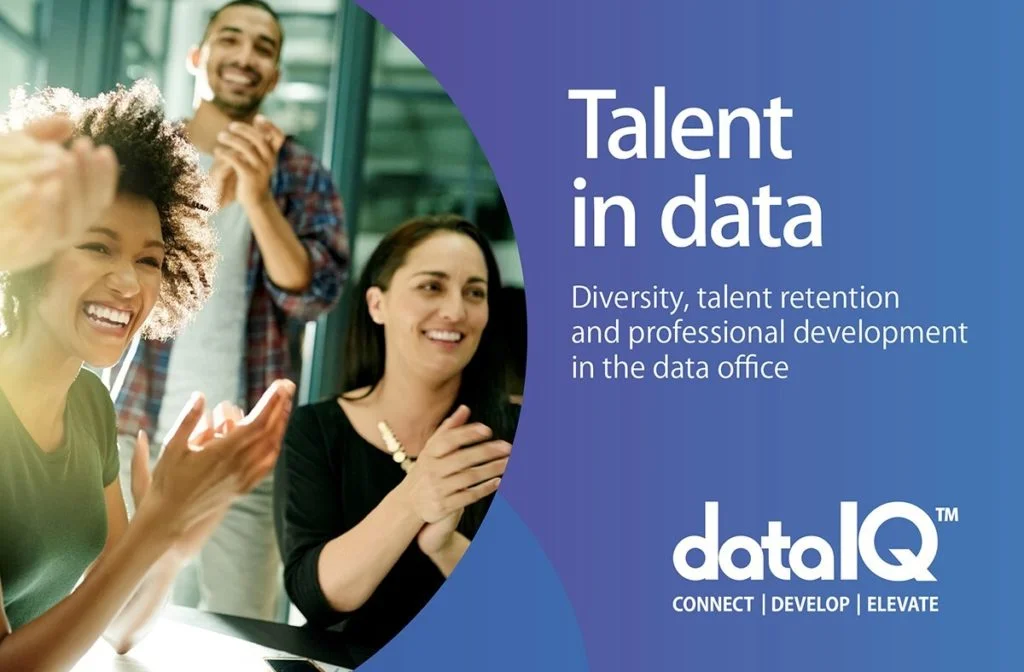Making Data Work for the Energy Sector

Data governance in the energy sector remains a stubborn problem despite heavy investment. While data governance is seen as a prerequisite for AI initiatives, using AI to enhance data governance is still largely aspirational.
How to start and embed a successful data academy: lessons from the DataIQ community

DataIQ members discussed what is needed to begin an in-house data academy to upskill team members and develop a sustainable talent pipeline.
Ethical AI: First, do no harm, then do some good (responsibly!)

As varying forms of AI and ML rapidly get adopted across the business world, there needs to be a discussion on the implementation of these tools and ethical AI to be used for good.
How to persuade data owners to be data stewards

It is one thing to own data sets, but another entirely to be responsible for its use and upkeep – so how can data leaders encourage team members to become data stewards?
How do we successfully implement machine learning ops within our data tech stack?

Machine learning is rapidly becoming an essential part of data tech capabilities, but there is still a level of risk involved and no definitive set of rules for introducing these new operations.
DataIQ Member’s Briefing – What does great data literacy look like?

Data literacy definitions vary between organisations, but the results and goals are similar for everyone. DataIQ members debated what great data literacy should look like and why.
DataIQ Member’s Briefing – ChatGPT: What the DataIQ community thinks

Over the course of three unique DataIQ roundtables, members examined the role of generative AI tools and what can be expected from their implementation.
DataIQ Member’s Briefing – Technology and tools: Is our data tech keeping pace?

DataIQ members came together for a roundtable discussion on whether the development and implementation of data tech is matching the pace required.
DataIQ Member’s Briefing – What ROI from data is the acceptable minimum?

At this month’s DataIQ roundtable, members discussed the ins and outs of return on investment when it comes to data usage.
Beyond the roundtable – CDOs and setting the vision

Beyond the Roundtable is an exclusive member only content series to continue the discussions from monthly DataIQ roundtables as there is always more to talk about at the end.
DataIQ members briefing – Is your CDO helping to set the vision?

Visions are an essential part of business development and improving the standing of a team within an organisation. DataIQ members discussed how much input is needed from the CDO to set the vision.
DataIQ Member’s Briefing – Can we fix it? The problem with data quality

DataIQ members agreed that quality is a must to become a mature and successful data organisation, but how can data quality issues be addressed?
DataIQ Member’s briefing – How can data governance support data for good?

At the most recent DataIQ roundtable, participants examined how their data governance can directly impact data for good and what it means to them.
DataIQ Members briefing: Attracting, nurturing and retaining talent – tips from the DataIQ 100

Over a quarter (27%) of the DataIQ 100 2022 edition say that the demanding market for data skills and difficulties in finding talent are a significant issue for their data plans. A variety of approaches are being adopted to resolve the problem, ranging from recruiting out of non-traditional backgrounds to providing ongoing skills development. This briefing lays out the common points identified from an analysis of this year’s Q&As.
DataIQ Member’s briefing – What do we do when bad data things happen to good data tech?

Despite best efforts and forward planning, problems arise in all shapes, sizes and seriousnesses within data. So, what do we do when bad data things happen to good data tech? DataIQ members came together to explore past experiences, how they were handled and what can be learnt from them to help other data leaders prepare for potential problems in the future.
DataIQ Member’s briefing – Is finance the next big skills area for data leaders?

Finances rule a huge part of business operations, so should data leaders consider finance skills the next big area of focus? There has been ongoing debate about how data teams can communicate with other departments and how this influences the value and standing of data. A group of DataIQ members explored the ways in which delving into finance skills could be the next way to improve businesses.
DataIQ Leaders briefing – How do we ensure data keeps its seat in the big conversations?

How can data offices and data leaders maintain their position at the table for large organisational conversations? In recent years, data offices have worked hard to establish their value and legitimacy, so how can this continue now that data is a regular part of beard discussions? A recent DataIQ roundtable discussed the different ways that this can be achieved.
DataIQ Leaders briefing – What gets HR onboard with the right role definitions for analysts?

The ongoing staffing difficulties for the data community requires collaboration with HR offices, but how can the data team ensure that HR is sourcing the best candidates for the job? A recent DataIQ roundtable examined the question “what gets HR onboard with the right role definitions for analysts?” and discussed ongoing issues facing data teams looking to retain staff and fill gaps.
DataIQ Leaders briefing – Enhancing the status of data

DataIQ members delved into the question “Do data platform projects enhance the status of data, or reinforce the perception that it is a technology function?” at a roundtable in April 2022. The conversation honed in on the ideas of business language and the importance of building a case to demonstrate value to enhance data’s status.
Leaders Summit: Key points from our “talent in data” roundtable sessions

In February, the DataIQ Leaders community gathered in central London for the first Leaders Summit of 2022. Attendees participated in three roundtable sessions, centred on the topic of talent in the data office. In this piece we’ve highlighted some of the key arguments that emerged from those discussions.
